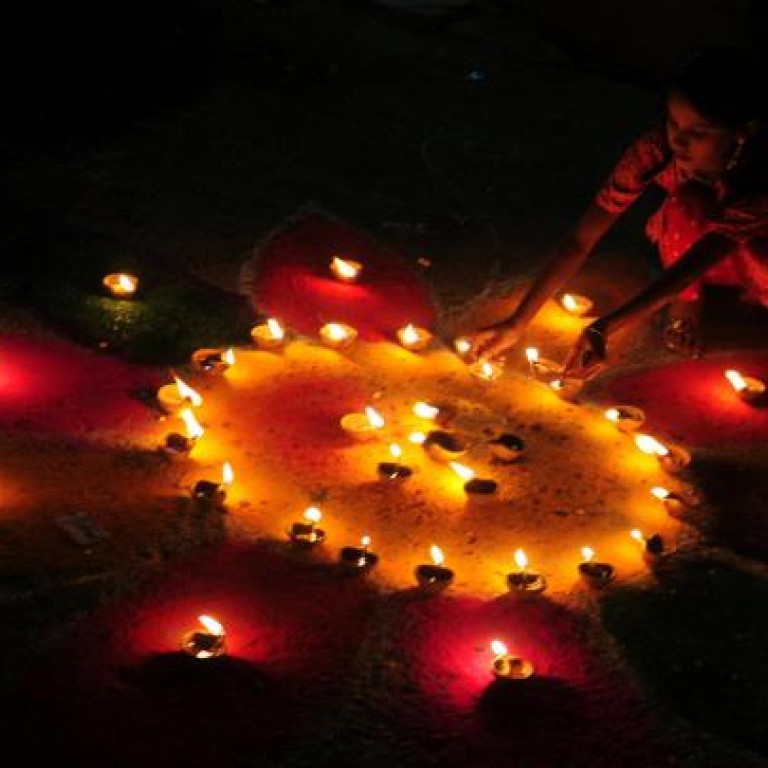
Learning Curve: Diwali a spiritual celebration
The four days of this year's Diwali celebrations begin today. Diwali, a contraction of Deepavali, is known as the festival of lights. One the most popular South Asian festivals, it's a Hindu celebration of the triumph of good over evil that is also observed by Jains and Sikhs.
And while the rituals of Diwali are singular to the Hindu community, the significance behind them has universal meaning for all students, says Ritoo Ahuja, a well-known figure in the Indian community who has been teaching Hindu scriptures to adults and children for the past 24 years.
The literal translation of Deepavali is "a row of lights" - so the festival expresses a wish that there may be more illumination. The lighting of the earthen lamp called signifies a prayer - . From the darkness of ignorance, lead us to light of knowledge - knowledge of ourselves and our purpose in life.
The central tenet of Hindu philosophy is the idea that the (self which is universal and eternal, goes beyond the limitation of the physical body. It is ignorance that compels us to identify with the physical body. Knowledge of the infinite nature of the atman and the oneness of all things brings (bliss). Deepawali is thus the celebration of higher knowledge or inner light.
There are several stories surrounding the origins of Diwali. The most popular celebrates the return of Lord Rama with his wife, Sita, and brother, Laxman, to the kingdom of Ayodhya from exile after vanquishing the demon-king Ravana. Lord Rama's joyous subjects mark his return by lighting lamps, firecrackers, and making colourful floor decorations known as at the entrances of homes. Victory over the demon-king symbolises the destruction of our own inner demons manifested in the form of ego.
The third day of Diwali is also the darkest day, and therefore is illumined by lights signifying the inner purification of the mind. The goddess Lakshmi is welcomed for the wealth and prosperity she represents.
While the stories behind Diwali and the manner of worship vary within different Indian communities, the essence is the same - to rejoice in the inner light or the underlying reality of all things (Brahman).
But how relevant are these teachings for young people today?
As Ahuja sees it, they offer students a guide to dealing with issues of friendship and peer-pressure and where to draw a line in pursuing material acquisitions - to vanquishing the inner demons of lust, anger, greed, delusion and selfishness that taint every mind. These symbolise the darkness of ignorance within. One can light the inner lamp of knowledge only when we cultivate the five basic human values of truth, righteousness, peace, love and non-violence. This is real wealth that the goddess Lakshmi brings. So a person who doesn't cultivate these values is poor despite having all material wealth because he can never be at peace.
My hope is that the brightness of the lamps will allow us to see all people and their diverse viewpoints without prejudice. I wish that the heat of the lamps banish laziness, inertia and procrastination, while their glow reminds us of the warmth that can be spread by simple gestures of kindness.
An editorial in two years ago said it well: "Regardless of the mythological explanation one prefers, what the festival of lights really stands for today is a reaffirmation of hope, a renewed commitment to friendship and goodwill and a religiously sanctioned celebration of the simple - and not-so-simple - joys of life."
Happy Diwali to all our readers.
Anjali Hazari teaches IB and IGCSE biology at the French International School


